Great Dane
Great Danes are the gentle-giants of the dog's kingdom as they have a lovely personality, despite being big dogs. They just love to play with children and are ideal family dogs for people living in medium to large households.
Average sizes and life expectancy of the breed
71-79 cm
50-82 kg
8-10 years
Germany
pure
working
Characteristics of the Great Dane
Due to their great demeanour and loud bark, Great Danes are often thought to be fierce. In reality, they are kind-hearted dogs who would curl up to you all day long. They are also known for their immense love towards kids. Of German origin, as its name implies, the Great Dane is also known in some countries as the “Danish dog”. Used in previous centuries as a hunting dog and war dog, he continues with many instincts of the genre and therefore suffers from the reputation of being an aggressive dog. But in reality, the Great Dane is a docile dog and is an amazing companion.
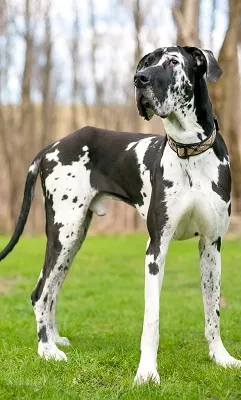
Coat
Great Danes have a short and dense coat. They are most commonly found in blue-grey and brindle colors, but gold, harlequin, black and white are also quite common. Despite having a short coat, Great Danes do experience shedding. This is mainly because of their big body, and they have so much hair in comparison to a small breed dog. But their shedding is not that profuse like other big dogs like German Shepherd or Golden Retrievers. A good deshedding brush can help you a lot in reducing the problem of hair fall in Great Danes. Although, rubber brushes go a long way too in capturing the hair like a magnet and also helping you do less vacuuming. Even though many Great Dane owners do brushing once in every week, you can brush your Great Dane's hair whenever you like. Also, remember to brush their hair gently as they have a short coat, otherwise you would end up hurting them.
Pet Profile
Recommended Treats for Great Dane
CHIP CHOPS Snacks Chicken Strips 70 Gm
1
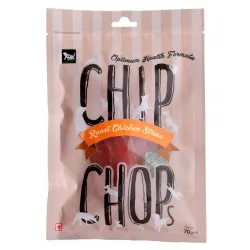
Jerhigh Dog Treats Variety Stix 200 gms
3
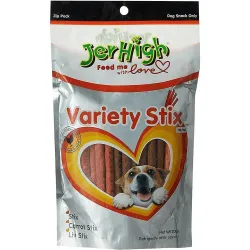
Goodies Dog Treats SpiraStix Pudding And Milk 450 gm
4
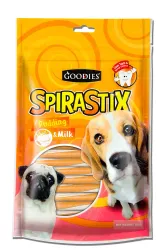
Pedigree Dentastix Daily Oral Care Large Dog Treats 270 g X 10
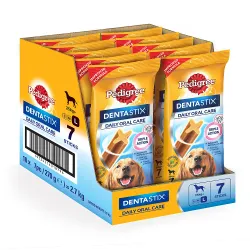
Best Dog Food For Great Danes
A Great Dane's diet should consist of real meat protein as it helps in promoting excellent muscle growth in the Great Danes. Protein also ensures good overall physical development as well. When it comes to puppy Great Danes, they should be given a calorie dense food in order to assist rapid growth in this phase. Feed them with a high quality dog food having large kibbles that satisfies all the dietary needs of the pups. For grown up Great Danes, it is recommended that you give them a Grain-Free kibble, as it will significantly reduces the chances of Bloating, a medical condition that often becomes fatal in this breed. Also, it would be good if you can divide their meal portion into six different times a day, instead of one or two large meals. This dietary method shall help you a lot in preventing obesity in them. As for senior Great Danes, their diet should consist of nutrients that will help them to stay active for a long time. Minerals like Glucosamine and Chondroitin are also recommended in their foods so that they maintain healthy bones and joints.
Grooming Your Great Dane
Despite having a short coat, Great Danes need regular grooming. The main reason for this being their big body that contributes to a lot of hair fall, even though it is gradual. So you will see your Great Dane shedding a fair bit of hair all through their year. To reduce the issue of shedding in these dogs, you may use a high quality Bristle Brush with a long, coarse hair that effectively reaches to the dog's undercoat. Bristle brush also go a long way in eliminating dander and dirt from the dog's skin. Another great brush you can use on Great Dane is Rubber Brush, where it works like a magnet, attracting loose hairs all over from the dog's body. When it comes to bathing them, you can do it once in every six to eight weeks. Regular bathing is essential for Great Danes, in order to minimise the problem of hair shedding, and to keep a healthy skin in them.
Taking Care of a Great Dane
The Great Dane sheds a lot of fur and therefore needs to be brushed quite often, especially in spring and autumn. Divide your Great Dane's meals so that he never eats a large amount at once - this can prevent him from having gastric torsion, a condition that can be fatal and most often requires quick surgical intervention.
History of Great Danes
Great Danes have their origin in Germany where they were used for hunting wild boars and bears. Their ferocity exhibited by their ancestors was slowly bred out from them as modern Great Danes are now more mellow and soft. It is a fact that in the early 1800s, Germans banned the name ‘Great Dane’ and called the breed “Deutsche Dogge”, which means German Mastiff. Still, the breed continues to be called Great Dane in English speaking countries.